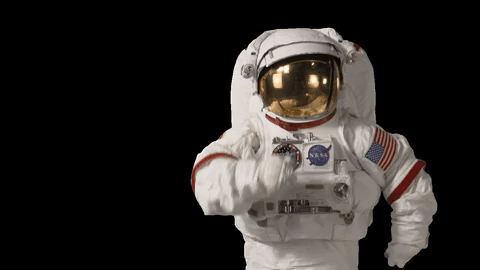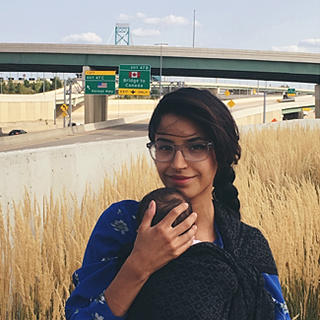On My Way to: Write a Personal Narrative
- Angelica De Jesus
- Feb 3, 2020
- 3 min read
![[Image description: A composite image comprised of two, layered photos. The base layer shows angelica running on grass towards a young guineo tree planted in a clearing, bathed in sunlight. Both the tree and Angelica are surrounded by light brush and lush, tall trees. The top layer is a blown-up image showing the bottom of Angelica's face: chin, nostrils, and lips. Taken together, it appears as if Angelica, the lighted clearing, and the young guineo tree are contained in Angelica's throat, and if the light were coming through the side of her head.]](https://static.wixstatic.com/media/047d9b_f185121365fb4e3b945c184bd648a86a~mv2.jpg/v1/fill/w_640,h_480,al_c,q_80,enc_avif,quality_auto/047d9b_f185121365fb4e3b945c184bd648a86a~mv2.jpg)
For me, writing is difficult. My brain is geared towards the staccato, and thrives in rapidly shifting environments where one's mind & body are fully engaged, like working in an ER, daycare, or farm.
Predictably, my bodymind feels at odds with writing which requires tedious repetition of a foreign-to-me movement (aka typing) that brings no pleasure to a hyper-active bodymind & hands that want to be not-metaphorically molding.
In an ideal world I wouldn't need to write to express my ideas. I could paint them, dance them, or whisper them to seedlings, both plant and human.
I imagine this is how my grandmother shared her ideas before teaching herself to read/write or my great-grandfather shared his knowledge with his family before the need to hold traditions in written word.
Of course, there are benefits to writing. I can write here, on this website and share ideas with a (hello, are you there?) audience. I can start the messy process of writing for an assignment, here in this "writing sketchbook".
This is my goal today: get into the messy beginnings of writing. I want to detangle thoughts related to a Personal Narrative assignment for an ethnic studies class taught by the incredible Dr. Yomaira Figueroa.
For this assignment we are to write a narrative about our lives, considering readings we've begun digesting up until this point. We are to consider the lessons from the writings - lessons on form, audience, and ethics - but we do not need to formally engage the writers in our work given that this is a narrative about "us" as individuals, who are also part of a collective.
Of the works we've read so far, these are a few that I may use to inspire my work for various reasons: Aurora Levins Morales' Medicine Stories (1/2 of us read 1998 version, 1/2 the newer 2019 version), Sylvia Wynter's The Ceremony Must Be Found: After Humanism (1984), Xhercis Mendez's Notes Toward a Decolonial Feminist Methodology: Revisiting the Race/Gender Matrix (2015), Nelson Maldonado-Torres' Epistemology, Ethics, and the Time/Space of Decolonization: Perspectives from the Caribbean and the Latina/o Americas (2011).
Medicine Stories & The Ceremony Must Be Found affirm my decision to write this personal narrative as a letter to my mother.
I want my writing to highlighting the humanness & nuance of my family (something difficult to accomplish using static methods like writing, or tweets). I want to write the complexity of my life, the harmful thinking i continue to unlearn, the healing i do in my personal time and with others, the messiness. This is, among many other things, what is human to me.
Notes Towards a Decolonial Feminist Methodology guides my ethical practice of really sending this letter to my mother. This assignment isn't just a performance but using work created in an academic context to practice an ethics of love. I love my mother, with a complex love.
I will talk about forgiveness in the letter as my way of mapping the way forgiveness has existed like an archipelago in my life. What I thought were islands of experience were connected by sea of forgiveness. This is connected to what Nelson Maldonado-Torres (from here on out NMT) describes as Caribbean spatial imaginaries. The spatial logics of archipelagos resonates, but I'm hesitant to adopt some thoughts associated with this spatial logic which is Walter Mingolo's critiques of continental spatial conceptions because this critique seems to oppose the idea that some ontologies (realities, ways of life) are/can be inherently continental or land-based, which includes Indigenous epistemologies and ontologies like Anishinaabe Bimaadiziwin, the "good life" (K Whyte, 2018, N. Bell 2013).
PHEW.
That's enough for now. Seems like i have a good idea of the form, content, and inspiration for my personal narrative...now to just write it...

[GIF description: Animation of a person (from the torso, up) in a space suit pumping their arms up and down as if marching forward. The background is pitch black. ]





Comments